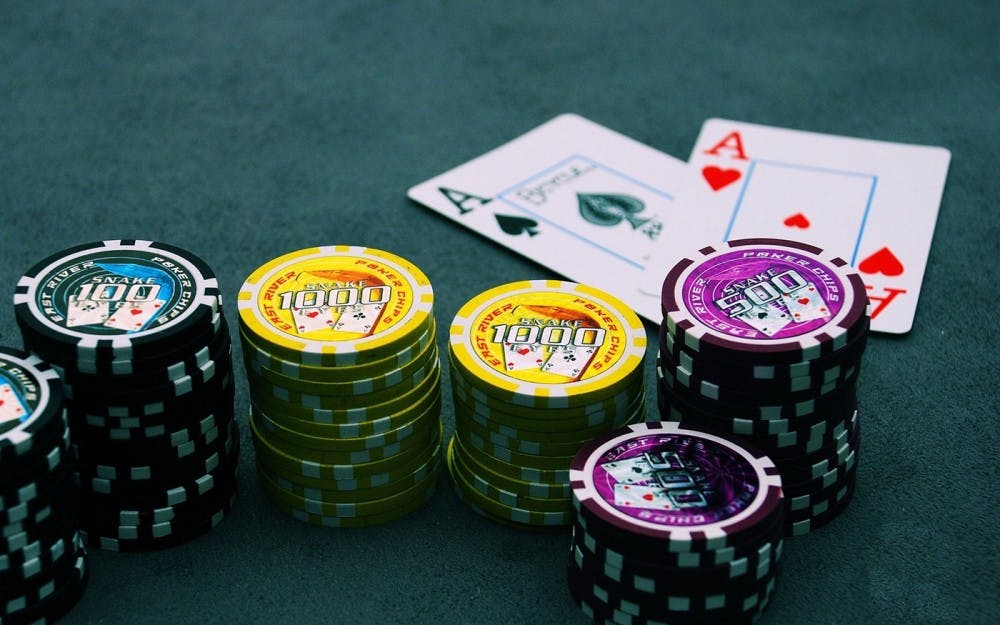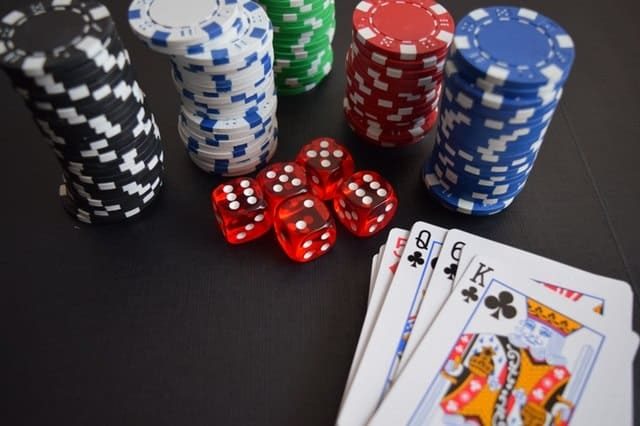Street Poker
4th Street Poker Club. Welcome to 4th Street! 4th Street is an online poker club located in the US. We provide a fun and fair playing experience. Poker is played on your mobile phone. “Poker Night in America” airs nationally on CBS Sports Network. THE FINAL TABLE As the popularity of poker as a spectator game continues to surge, Rush Street Productions has expanded its Poker Night franchise to include a spinoff show called “The Final Table,” which provides a mainstream perspective of poker.
1. The fifth card delivered in a stud game 2. The betting round that follows the delivery of the fifth card.
2. The betting round that follows the delivery of the fifth card.
In certain poker games, the “street” that you are on is used as a metaphor to describe what part of the hand you have progressed to. In these games, the number of cards that you have been dealt is equivalent to the “street” that you are on. If you have three cards, you are on “third street,” if you have five cards in your hand you are on “fifth street,” and so on. It is important to note that “street” can refer to both the actual card that is delivered as well as the betting round that immediately follows. For example, in the case of “fifth street,” the fifth card that is delivered is fifth street, but during the betting round that follows, you are said to be “on fifth street.” Sometimes, the word “street” is dropped, in which case, you are said to be “on fifth.” This terminology is most commonly used in Seven Card Stud games. It can also be used in flop games, but its usage is slightly different in this context.
- Cards dealt on a particular round in stud games. For instance, the fourth card in a player’s hand is often known as fourth street, the sixth card as sixth street, and so on.
- Noun The card in a round of betting for which only one new card is dealt or revealed. The street number identifies the number of cards each player has at that point in a stud game or the number of board cards that have been revealed in a community card game. EXAMPLE: 'Fourth street was the Jack of spades.'
- Street-Wise Poker: The Highs and Lows of Stud-8 Explained. By Ashley Adams. Poker profit comes from the disparity between your skill and the average skill of your opponents.
In a Seven Card Stud game, after the antes are posted, and prior to the initial betting round, each player is dealt three cards. This is called the “starting hand.” The betting round that follows the delivery of the starting hands is referred to as third street, because all players have three cards at this point. There is no first or second street. As the hand progresses, the street numbers run from third street to seventh street, which is commonly called “the river.”

Fifth street in a Seven Card Stud game is particularly important for a number of reasons. For one thing, it is the earliest you can complete a five card poker hand. When a player completes his hand on fifth street, he often has a substantial advantage over the field. Depending upon the field, he may or may not get credit for completing his hand on fifth, and he will often get good action the rest of the way from the players who do not give him credit.
Fifth street is a crucial point of commitment to the hand. If you elect to call a bet on fifth street, it will often cause you to commit to call the rest of the way. This is fine if you can legitimately justify a call on fifth, but if you are chasing with a bad hand, it can get costly. It is not a time to make speculative calls, because not only is the bet amount twice as much as it was on fourth street, you also have one fewer cards left to make your hand with.
The other players in the game know that fifth street is often a make or break card for the field. For this reason, it is common for plays to be made on fifth, in an attempt to thin the field. The player who bet on fourth street will often make a continuation bet on fifth, even if they have not improved. It is also common for a player to represent a hand which he does not have by betting or raising on fifth street.
Occasionally, the post flop betting rounds in a flop game are also referred to as streets, although they are most commonly referred to as flop, turn, and river. In a flop game, the streets are numbered differently than they are in a Seven Card Stud game. In a Stud game, the streets are numbered according to the total number of cards in each player’s hand. This means that the streets run from 3rd through 7th. In a flop game, the streets are numbered only by the number of community cards on the board. Since there are ultimately only five cards on the board in a flop game, beginning with a three card flop, the streets run from 3rd to 5th. This means that the flop is third street, the turn is fourth street, and the river is fifth street. It is fairly rare, though not unheard of, to hear the cards or the betting rounds in a flop game be referred to as streets.
Also, Positively Fifth Street is a poker book written by James McManus.
Usage: Folded On Fifth Street, Raised On Fifth Street, Caught An Ace On Fifth Street
Previous Poker Term: Family Pot
Next Poker Term: Fill-Up
Wall Street Poker is a form of stud poker which also features community cards. It is named after the financial district of New York and the movie of the same name, because of a strategy of aggressive bidding involved.

Rules[edit]
Players are initially dealt three hole cards, two face down, one face up. Everyone pays an ante.
Four community cards are then dealt face up, each with a different value, this is called the Wall Street. Each round then starts with the player with the strongest hand showing. For example, a showing pair would beat a high card.
Rather than a betting round taking place, a bidding round occurs, where players choose whether to buy a community card. The card on the left of the dealer costs one betting unit, the next card two betting units, the next card three betting units and the card to the right of the dealer costs four betting units. The fee for the card then goes into the pot. If a player chooses to purchase one of the cards it is replaced from the top of the deck.
Street Poker Terms
If they choose not to purchase a card, they are dealt one for free face up. This process repeats until every player has four face up cards. So for example if the minimum bid was $1, and a player is dealt a pair of Kings, if a King is the third community card to the left of the dealer, it would cost them $3 to take the King.
Players are then dealt a face down card and a final betting round takes place.
Variations[edit]
There are also wild card versions of this game where the most expensive card can be a wild card, meaning that it has any value the player wants it to be. For example, if a Queen is needed to make a straight, it would cost four betting units but a player could purchase the wild card to count as the Queen. Another version of the game plays in the following way:
- All players pay the antes.
- Four cards are dealt face up on the table.
- The furthest left card (from the dealer perspective) is marked with a chip.
- All players are dealt two cards.
- Every player now has the option to decide: (a) to get a third card from the dealer which is dealt face up; (b) to buy one of the four cards that were dealt previously, with the card to the left of the dealer costing one betting unit, the next card two betting units, the next card three betting units and the card to the right of the dealer costing four betting units.
- The first betting round takes place. When played with antes, each pot is opened by the player who shows the weakest hand. They have to pay the bring-in and can also raise.
- Again every player can decide to get a card from the dealer or to buy a card from the Wall Street.
- Second betting round.
- There are three more betting rounds. Before each round each player draws an additional card. Cards five and six are dealt face up, card seven is dealt face down.
| Type | Stud poker / Community card poker |
| Players | 2+, usually 2–9 |
| Skill(s) required | Probability, psychology |
| Cards | 52 |
| Deck | French |
| Play | Clockwise |
| Card rank (highest to lowest) | A K Q J 10 9 8 7 6 5 4 3 2 |
| Random chance | Medium to high |